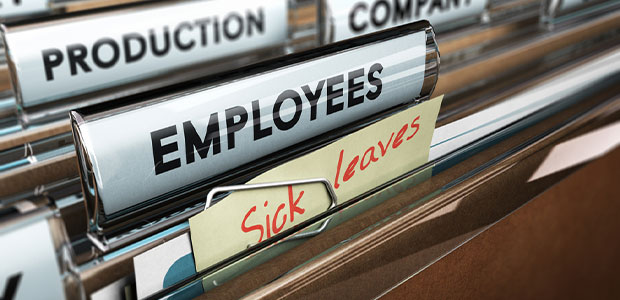
States Increasingly Require Employers to Provide Paid Sick Leave— but Even More States Block Local Paid Sick Policies
No federal regulation and uneven state paid sick leave laws put workers in certain states and industries at risk.
More than a quarter of U.S. jobs are guaranteed paid sick leave thanks to state laws enacted over the past decade, according to a new study from researchers at NYU School of Global Public Health. Twelve states have passed laws requiring employers to provide sick leave as of 2020.
However, a growing number of states without paid sick leave laws prohibit local governments in their states from creating their own sick leave regulations, worsening inequities given the lack of universal coverage by employers.
Providing sick employees paid time off helps workers seek medical care, recover from illness more quickly and is even linked to a lower risk of death. Paid sick leave also benefits employers—allowing people to stay home when sick limits the spread of infectious diseases in the workplace, as outbreaks can lead to widespread absenteeism and lost productivity.
“The COVID-19 pandemic has underscored the critical need for access to paid sick leave for workers, their families and employers,” said Jennifer Pomeranz, assistant professor of public health policy and management at NYU School of Global Public Health and the lead author of the study, published in the American Journal of Preventive Medicine.
The United States is one of few high-income countries without a national law guaranteeing paid sick leave, funded by either employers or the state. Most U.S. workers rely on their employers for paid sick leave; 77 percent of the private workforce and 92 percent of government workers are covered this way. However, paid sick leave is uneven across industries, with only 59 percent of workers in service occupations covered. Industries such as food, hospitality and retail rarely offer paid sick leave, leaving many workers vulnerable to lost wages or forced to work while sick.
To fill this gap, some local and state governments have created paid sick leave laws, beginning with San Francisco in 2007 and Connecticut in 2011. Meanwhile, some states without paid sick leave laws have passed laws blocking local governments from creating their own regulations around paid sick leave—a practice called preemption. Preemption occurs when a higher level of government removes or limits the authority of lower levels of government to act on a given issue.
“Preemption can be used by governments to achieve consistency in policymaking across a given state, but when it is used without also enacting substantive state-level policies, it creates a regulatory vacuum,” said Pomeranz.
“When it comes to public health issues such as firearms, tobacco, nutrition, and now sick leave, we’re seeing states increasingly limit the power of local governments by passing laws that overrule local regulations,” added Diana Silver, associate professor of public health policy and management at NYU School of Global Public Health and a study co-author.
In this study, the researchers examined state paid sick leave laws and state laws preempting paid sick leave across the U.S. from 2009 to 2020—and found a substantial increase in both.
As of 2020, a total of 12 states had paid sick leave laws (up from zero states in 2009). Using data from the U.S. Bureau of Economic Analysis and the U.S. Census, the researchers estimated that 27.6 percent of U.S. jobs were covered by these state-required paid sick leave laws as of 2019.
In states requiring paid sick leave, though, the laws vary. All cover private employers and require care for children and spouses, but some laws exempt small or public employers, exclude certain occupations (e.g. manufacturing or agricultural workers) or do not cover additional family members.
“Excluding low-wage workers—many of whom work in jobs that increase their risk for illnesses like COVID-19 and lack access to employer-based coverage—from paid sick leave protections only further exacerbates health disparities,” said José Pagán, chair and professor of the Department of Public Health Policy and Management at NYU School of Global Public Health and a study co-author.
Strikingly, the researchers found that as of 2020, 18 states without laws requiring employers to provide paid leave passed laws to preempt local governments from passing their own paid sick policies (up from only one state preemption law in 2009).
“There are more states that have blocked local governments from creating paid sick leave laws without any statewide action to guarantee paid sick leave than states with paid sick leave protections,” said Pomeranz. “We need a federal policy solution that gives all workers access to paid sick leave benefits, especially low-wage workers who have no choice but to work when sick.”
The research was supported by a Policies for Action grant from the Robert Wood Johnson Foundation (#76098). Sarah A. Lieff was also a study co-author.
This article was contributed by the NYU School of Global Public Health.